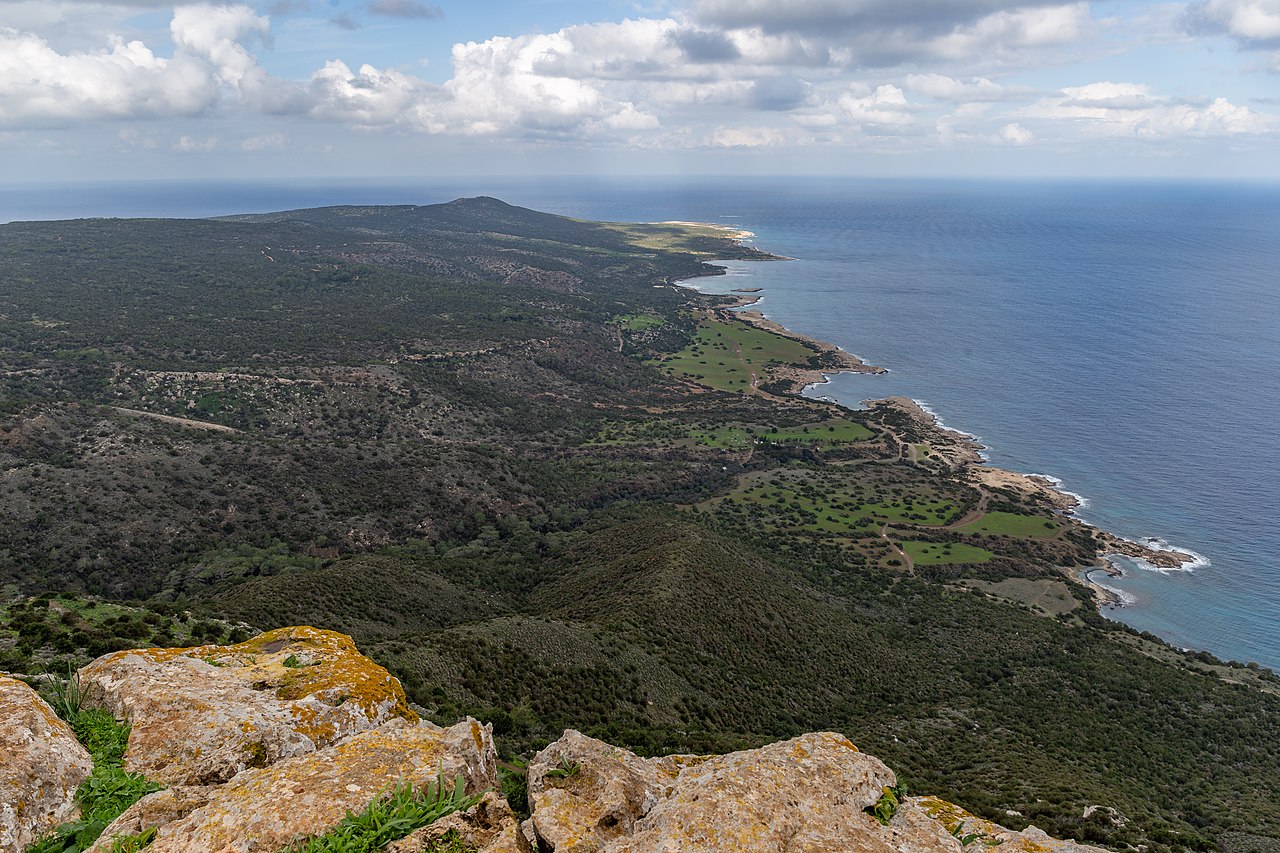Roads, kiosks and houses all spell disaster
By Efi Xanthou
The Akamas peninsula is the last pristine area left in the non-occupied area of Cyprus. And change is imminent. Road works are underway, ripping up the landscape and providing access to parcels of land that could only previously be utilised for agricultural activities.
Fourteen new kiosks are being built in key positions, away from the Akamas villages, focal points for visitors to the area. The village mukhtar of Ineia wants to plant seaside beds and umbrellas on the protected Lara beach and all the mukhtars want houses to be built in plots of land that are not included in the existing residential zones.
In the meantime, the Town Planning Department will be examining the 600 something objections it has received to the draft plan they made public on February 24, 2023. The deadline for objections was June 24 and the department has 12 months to examine them and make a final decision.
In the meantime, the roadworks and kiosks are being constructed, without the town planning processes that are necessary to ensure that no-one is being taken advantage of. You see, instead of going through the process of acquiring land for the road expansions, the government simply opted to confiscate it. The decision to yet again confiscate land, despite two court decisions that clearly deem this practice illegal since 2020, displays the arrogance of a government that knows that they can violate citizen’s rights without any real repercussions, since time will resolve all arising problems, eventually.
So the new road network was mapped out without warning the owners of the affected properties, not giving them a chance to object. What is mind-blowing is the fact that the road works are uprooting trees that have managed to survive in the arid landscape, despite alternative options available, displaying the total disregard of responsible departments to the need to safeguard the existing natural wealth of the area! Is it preposterous to assume that “those in the know” made sure that their own parcels of land remain unaffected while the land owned by others, less networked with the powers that be, essentially suffered a state-sanctioned land grab?
The previous and current government have decided to take action to resolve the Akamas peninsula conundrum once and for all, but will do so without protecting the environment, without securing objective benefits for the residents and landowners of the area and by opening the floodgates to big developers that have been eyeing the area for big development projects for decades.
I remind our dear readers that when a parcel of land is adjacent to electricity power lines and has access to water-distribution systems, then it automatically has a right to development. And it is feared that, despite the current government claims that they will not allow the development of any buildings outside the residential areas, there is no guarantee that this decision will not be overturned in the near future.
Let us also take into account the alarming reports of developers using existing structures in the Akamas peninsula to claim the right to build holiday homes. I am referring to the “stiathkia”, basically small traditional shacks usually with no walls, built in rural areas to offer protection from the sun and rain for livestock. It seems that these structures were never registered with the Land Registry Department, since they were quite old and usually made from rough material, so various developers are buying up property that contains such structures and upgrading them into holiday homes.
There also seems to be the possibility of entirely new structures being built, with the owners presenting them as upgraded “stiathkia”. The Paphos District Office has already identified 25 such illegal structures but has only pursued two with court cases.
On September 13, the House environment committee discussed the Christodoulides’ government plans for Akamas. Costas Hadjipanayiotou, the director of the newly established directorate-general for environment, informed MPs that a new ministerial decision allocates an average of €7,916,300 per year to the rolling-out of the Akamas plans, with a five-year budget of €39,581,500 for the years 2023-2028. No information has been provided on how much of the €7 million allocated for 2023 have been already utilised but rest assured that we will ask during the discussions concerning the 2024 government budget.
For now, we note that the plan is supposed to take effect on September 1, 2023, since the Anastasiades ministerial council decision gave a six-month delay to the enforcement of the town planning decisions, whilst the Department for the Environment still has not finalised its administration plan for the Akamas National Park. Time has run out, and the only changes we have seen on the ground make us wonder how much of Akamas will left to protect in a few years’ time…
Efi Xanthou is a political scientist and the Coordinator of the Interior Committee for the Cyprus Greens-Citizens Cooperation, [email protected]








Click here to change your cookie preferences